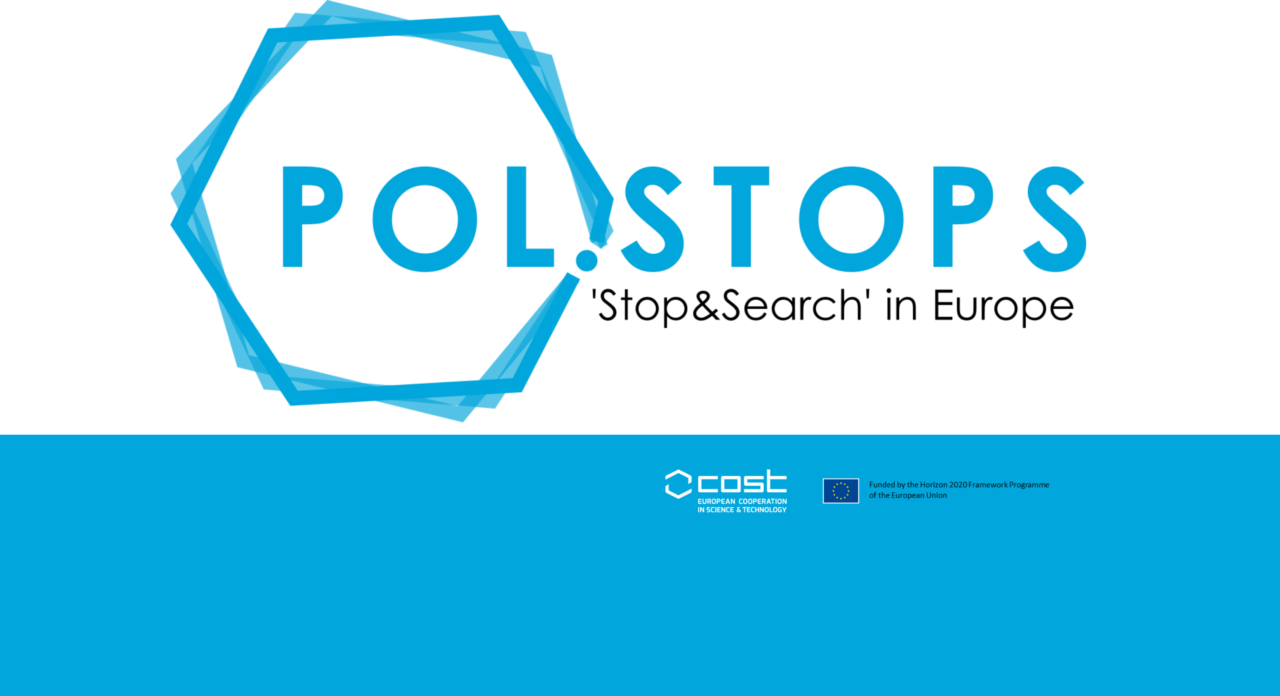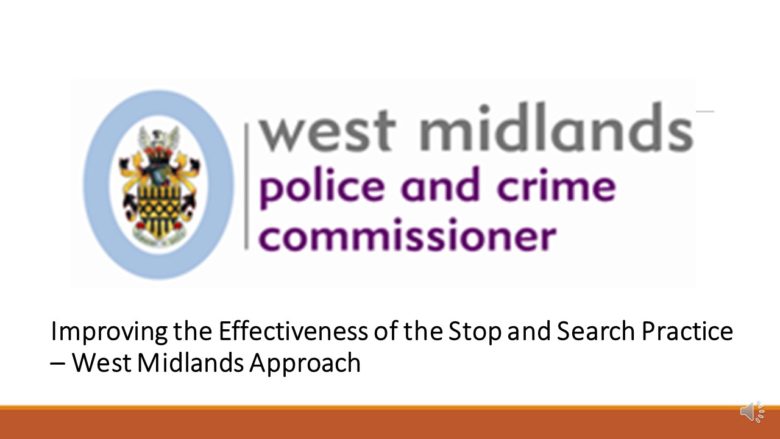
In line with our project’s ambition to share learning and shape improvements to the governance and practice of police stops across Europe, WG1 and WG3 are organising the workshop ‘Improving the Governance and Practice of Police Stops’ that will take place online on 24 November 2020, 13:00-15:00 (GMT)/14:00-16:00 (CET).
We intend to bring together a variety of resources which capture experiences of bringing about change, and to share this learning across our partner countries. Much of this will explore the reform journey in Scotland and England and Wales, but we are interested in learning from other jurisdictions too. The event will be an opportunity to hear short presentations, pose questions and participate in discussions of the key learning points. We will start with a panel of experts, including police professionals, followed by more in-depth discussions in breakout groups.
Programme
13:00-13:50 (GMT)/14:00-14:50 (CET) Plenary meeting
Introduction by Dr Liz Aston (Edinburgh Napier University)
Short panel presentations by Supt Ian Thomson (Police Scotland), Prof Susan McVie OBE (University of Edinburgh), Gill Imery QPM (Chief Inspector of Constabulary Scotland) and Nick Glynn (Open Society Foundations)
Q&A moderated by Dr Megan O’Neill (University of Dundee)
13:50-14:00 (GMT)/14:50-15:00 (CET) Short break
14:00-15:00 (GMT)/15:00-16:00 (GMT) Breakout groups
Breakout group 1 Improving the Governance of Police Stops, moderated by Dr Liz Aston
This session will provide an opportunity to pose questions and discuss key lessons learned in relation to improving the governance of police stops. What steps can we take to improve the governance of police stops? What is the role of data in governing stops? What improvements can be made to internal governance mechanisms? What can the role of external oversight bodies and civil society organisations be?
Breakout group 2 Improving the Practice of Police Stops, moderated by Dr Megan O’Neill
This session will explore in more detail the lessons learned about improving the practice of police stops and discuss questions from the participants on this. Topics may include how best to bring about large-scale change to an established policing method, how best to communicate change internally, the benefits to policing generally from improving police stops and the role of partner organisations in the process of change.
Resources
Participants are encouraged to review the resources below before 24 November. These present the background and related materials which will inform the discussions on the day.
Stop and Search timeline of events – This document presents the timeline of events from 2013 to 2017 which led to a comprehensive reform of the practice and governance of police stops in Scotland. Prior to reform, police officers in Scotland were recording about 600,000 stop searches per year, most of which were not based on statutory grounds and with very little oversight. Since the reform process, the internal and external oversight has been enhanced, the data based is more robust and detailed, and a Code of Practice is now in place. All stops in Scotland are now based on statutory grounds, and have dropped to about 40,000 per year.
Interview with Superintendent Ian Thomson, Police Scotland, by Dr. Megan O’Neill
Ian Thomson summarises the reform process in Scotland: why it happened, what was done and what the outcome was.
Interview with John Scott QC, Chair of the Independent Advisory Group on Stop and Search in Scotland (2015-2017) by Dr. Liz Aston
Interview with Nick Glynn, by Dr. Mike Rowe
Nick Glynn is a former police officer who has been actively seeking to change police practices, first from inside the police organisation and at the College of Policing, and more recently with the Open Society Foundations.
Interview with Prof. Susan McVie (University of Edinburgh), by Dr. Megan O’Neill
Prof. Susan McVie was a member of the Independent Advisory Group, established by the Scottish Government. She reflects on the key events in reforming stop and search practice and governance in Scotland and the importance of using policing data to improve policing.
Interview with Derek Penman QPM, former Chief Inspector of Constabulary in Scotland (and a former Chief Constable), by Dr. Liz Aston
Derek outlines the role of Her Majesty’s Inspectorate of Constabulary in governing and improving stop and search in Scotland. He reflects on the role of various stakeholders and the value of academic research in the reform process.
Interview with ACC Steve Johnson from Police Scotland, by Dr. Megan O’Neill
ACC Steve Johnson leads on stop and search in Police Scotland. He reflects on the journey of change Police Scotland experienced and how important it is for community relationships and police legitimacy to do stop and search well.
Improving the Effectiveness of the Stop and Search Practice, West Midlands Approach, narrated presentation by Shezè Malik
KEY SCOTTISH STOP AND SEARCH academic outputs – This document presents a list of some of the key academic outputs on stop and search in Scotland, both before and after the reform process.
HMICS Submission – European Cooperation in Science and Technology Action on Police Stops
Dedicated Stop and Search webpage of Police Scotland
Police Scotland’s internal review of stop and search
Police Scotland’s three improvement plans for stop and search:
- Stop and Search Improvement Plan 2015/16 (Testing Phase I)
- Stop and Search Improvement Plan 2015/16 (Interim Consensual Phase II)
- Stop and Search Improvement Plan 2016/17 (Code Phase III)
Stop and Search Improvement Progress Report for the Cabinet Secretary for Justice, June 2019 In particular, see under Recommendation 16: “The use of stop and search is wider than preventing violence, and furthermore, it is recognised that all policing activity should be focused on the delivery of improved outcomes. The lessons learned throughout the stop and search improvement journey are informing the wider policing approach, with the recent remodelling of Licensing and Violence Reduction Division and National Safer Communities to form a single Safer Communities Business area and provide a collaborative, preventative and evidence based focus across all of the policing priorities.”
Scottish Police Authority:
0. Summary Note – key documents and highlights
1. Scrutiny Review report (published 2014)
2. Landscape Review on Stop and Search
3. Qualitative Research findings on people stopped and searched
4. UPYC Data on Stop and Search and young people
5. Social Attitudes Survey Results from 2015/16
6. Example of an Assurance report to one of the SPA’s Committees






